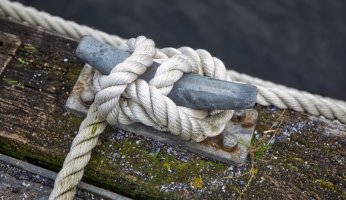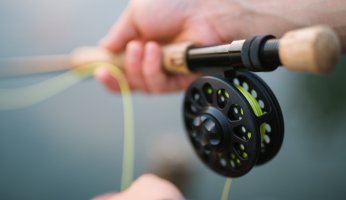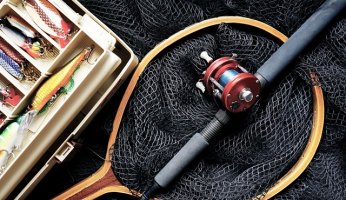Farm Fishing for Largemouth Bass
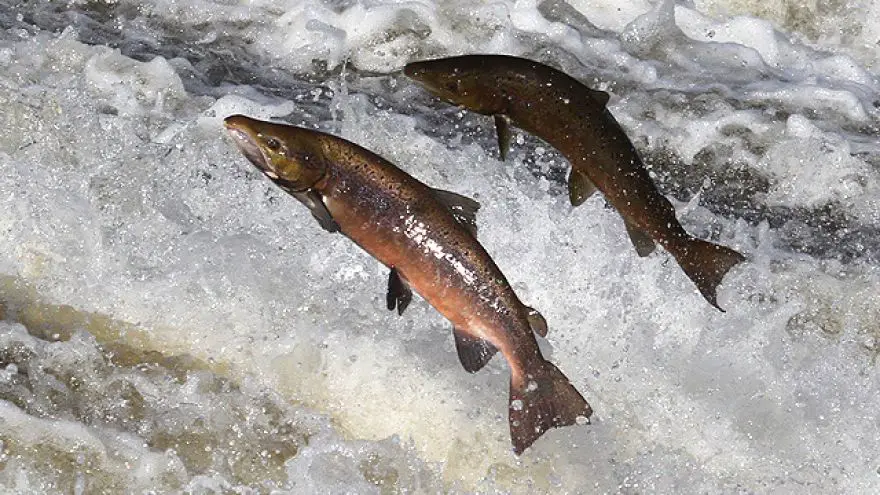 Farm Fishing for Largemouth Bass
gearweare.net
Farm Fishing for Largemouth Bass
gearweare.net
If you want excitement from shore fishing, it does not get much better than standing over a farm pond and hooking a big largemouth on an ultralight rod. When I was a child, my grandfather owned the largest hog farm in Southern Missouri and let me fish the ponds. He had a 12 pounder mounted on the wall of his office, and my goal was always to catch one that big.
The corporate hog operations have put all the local hog farms out of business since then, but I still try to find a good pond during the summer months. I am lucky enough to have one on our land right now, and all of the fish are whoppers. It is great watching my son, my niece, or one of my nephews land a big one and hold it up proudly.
This type of fishing is unique, and there are certain strategies that will help you be more successful. In this article I will cover just a few points that will help you fill your limit.
Table of Contents
Where to Cast
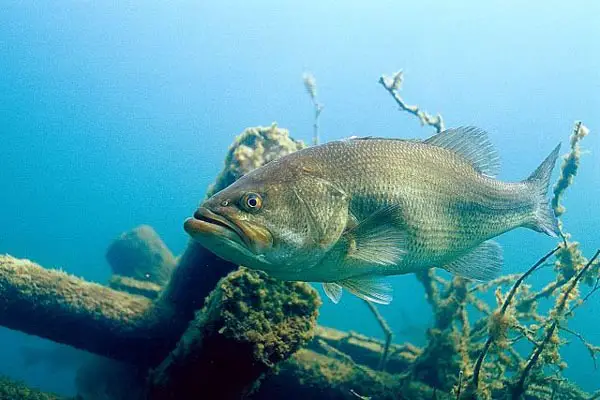
Fishing for pond largemouth bass is all about protected areas for the fish to hide. If there are lily pads, down trees, reeds, or large rocks, this is likely where you will find the most fish. I have caught bass all over our pond, but these are the areas when I normally land a good sized bass on the first cast.
The potential for snags is high, so rigging your lures to reduce this issue is a good idea. With soft lures I normally do a Texas rig so there is less likelihood of getting stuck on debris. I also do not spend much on lures so I can buy several of them.
Stimulate the Senses
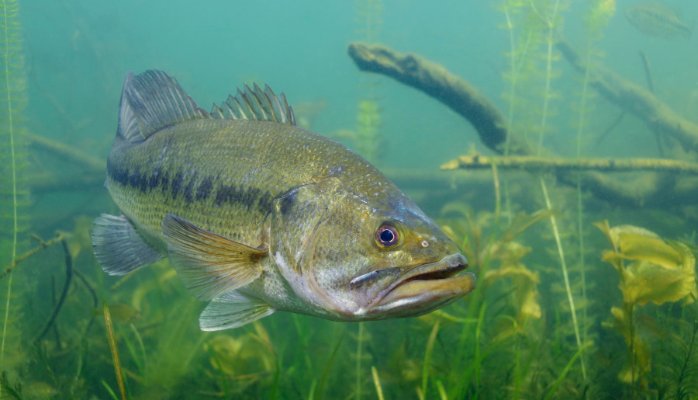
Bass are instinctive predators and often cannot fight the urge to strike if you overwhelm their senses. Many fishermen just focus on the appearance of a lure, but they are missing a huge opportunity. For bass you want to consider a lure with lots of movement like a spinnerbait, a soft frog, or a plastic worm, but you also want lures that produce a sound and smell.
Many lures have the ability to make a popping sound like top waters. This can draw a bass from clear across the pond if you use it right. Also, many soft lures come with a scent applied to them to attract fish. If a bass can see, hear, and smell your lure, it is very hard for them to ignore it.
Keep your Gear Small
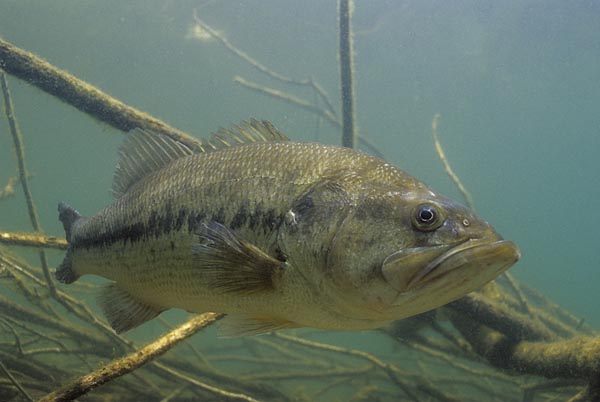
When I was a kid, I used a long thick fishing rod for bass fishing. However, as I got older I realized that a short ultralight is the way to go. You can feel every little nibble and can usually tell the size of the fish by the movement of your rod. Also you will often have to duck under trees on ponds, so a shorter rod gives you more options for casting.
Most importantly, bass fishing requires you to cast into very small windows to avoid debris. Often I am aiming for a spot that is 20 feet away and only one foot across. It is much easier to cast accurately with a shorter rod.
Watch your Timing
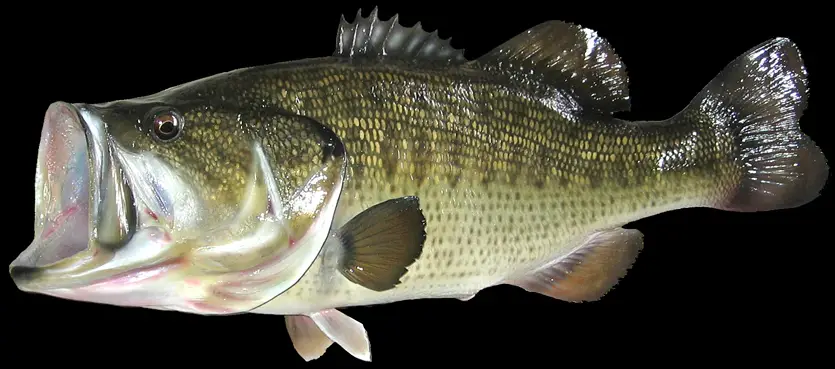
You can catch bass on ponds year round, but there are windows when you are almost guaranteed to get some action. The ideal time of day for bass is the two hours after the sun rises and the two hours before the sun sets. When it gets hot in July and August, this may shift to just before sunrise and after sunset.
As for the time of year, I get the best action in late spring and early fall. Often the bass will head to deeper water during the hottest months, and they do much less feeding during the winter months. Also, avoid times of the year when the food sources are ample. We have a huge bullfrog population on our pond, and the tadpole hatch is rough. There is so much food for the fish that they have little reason to go after my lure.
Be Ready for the Jump
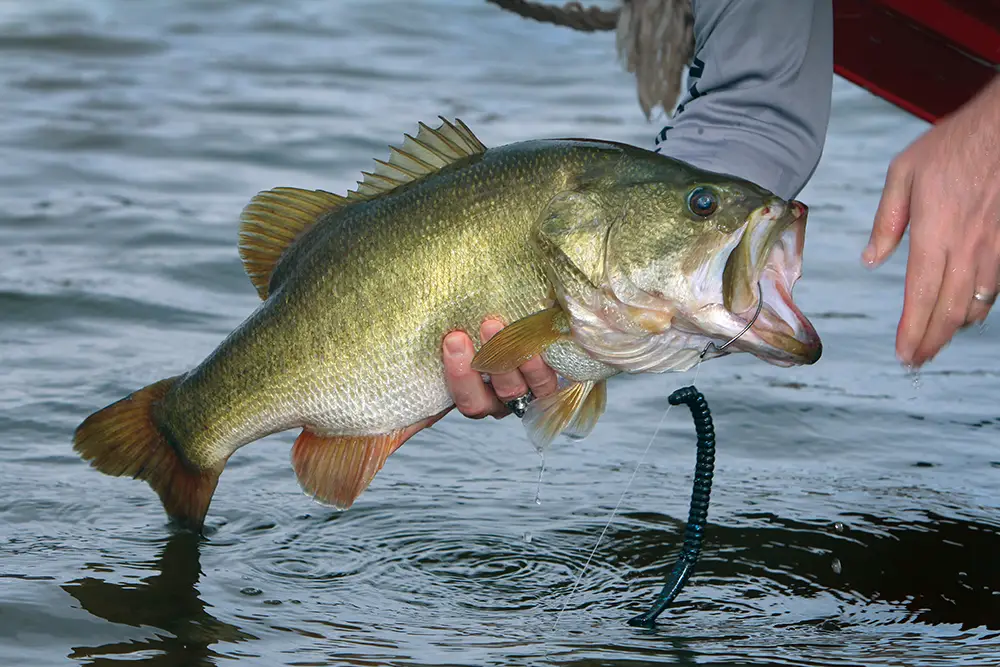
Largemouth bass, especially big ones, like to jump out of the water when hooked. This is exciting and lots of fun, but it often allows the fish to get free from your hook. When they jump they shake their heads back and forth, and a tight line will sometimes allow them to get free.
After switching rods with no luck, I figured out that the best way to avoid this is to anticipate the leap and give the fish some slack when it happens. This takes the pressure off of the hook, and they cannot get the leverage they need. After reeling for a few seconds to prompt the jump, I hold the line in my left hand and pull out a few feet of slack applying pressure on the fish. Then when it jumps, I allow that slack to slip through my fingers so there is no pressure on the fish while it jumps. It takes some practice, but works well.
Buy a Good Net
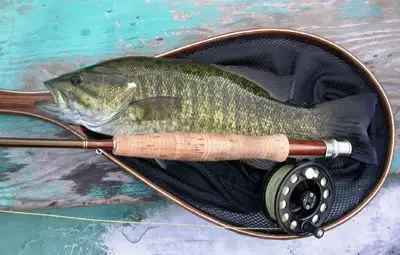
Our pond has no overflow or feeder creek, so the water level fluctuates by as much as four feet depending on the weather. This means that there is sometimes a huge drop off from where I stand to the edge of the water. There are also ponds that have a large area of vegetation around the edges which fish can get tangled within.
I owned a net with a short handle, but it was worthless on our pond. I finally found a crappie net that extended out to around 10 feet long. It was perfect for pond fishing. I can net my fish well before it gets tangled in vegetation, and often I can net it from the shore without getting wet. Before I bought this net, I lost several fish that wriggled of the hook while pulling them out of the water.
I hope these tips will help you catch more bass and bigger bass in the future. One of the beauties about farm ponds is that they are seldom fished. This means bigger fish and less experienced fish. The prior owner of our property did little fishing and we have reaped the benefits.
Most farmers are fine letting you do some fishing, so do not be afraid to ask for permission. As long as you respect their rules and stay responsible, you will likely have a fun fishing spot for years to come. Now get out there and hook that monster bass.





